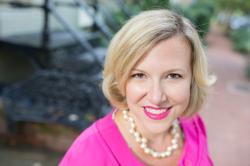

10:00 am EST - 11:30 am EST
Past Event
10:00 am - 11:30 am EST
1775 Massachusetts Avenue, NW
Washington, DC
20036
While Egypt, Libya and Syria capture much of the public attention on the Arab awakening, the elections taking place in Morocco and Tunisia are providing the first glimpses of whether and how democracy will come to the Arab world. What can recent events in Morocco and Tunisia tell us about the course of the rest of the region? How will these regimes change their relations with other Arab countries and with Washington?
On November 9, the Saban Center for Middle East Policy, the Maghreb Center and the Moroccan-American Center for Policy hosted a discussion on the impact of the elections in Morocco and Tunisia for the Arab world. Panelists included: Néjib Ayachi, president of the Maghreb Center; Anouar Boukhars, assistant professor of international relations at McDaniel College; and Sarah Yerkes, a Ph.D. candidate in the department of government at Georgetown University. Senior Fellow Daniel Byman, director of research at the Saban Center, provided introductory remarks and moderated the discussion.
After the program, panelists took audience questions.




Madiha Afzal, Marsin Alshamary, Aslı Aydıntaşbaş, Pavel K. Baev, Sarah A. Binder, E.J. Dionne, Jr., Vanda Felbab-Brown, William A. Galston, Sharan Grewal, Ryan Hass, Tanvi Madan, Suzanne Maloney, Gian Maria Milesi-Ferretti, Itamar Rabinovich, Natan Sachs, Jaganath Sankaran, David Wessel, Andrew Yeo
April 15, 2024

Suzanne Maloney
April 8, 2024

Vanda Felbab-Brown, Jeffrey Feltman, Sharan Grewal, Steven Heydemann, Marvin Kalb, Patricia M. Kim, Tanvi Madan, Suzanne Maloney, Allison Minor, Bruce Riedel, Natan Sachs, Valerie Wirtschafter
April 5, 2024